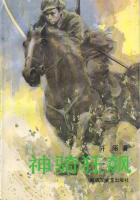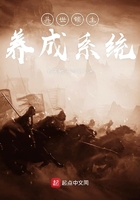ALL the roads of our neighbourhood were cheerful and friendly, having each of them pleasant qualities of their own; but this one seemed different from the others in its masterful suggestion of a serious purpose, speeding you along with a strange uplifting of the heart. The others tempted chiefly with their treasures of hedge and ditch; the rapt surprise of the first lords-and-ladies, the rustle of a field-mouse, splash of a frog; while cool noses of brother-beasts were pushed at you through gate or gap. A loiterer you had need to be, did you choose one of them,--so many were the tiny hands thrust out to detain you, from this side and that. But this other was of a sterner sort, and even in its shedding off of bank and hedgerow as it marched straight and full for the open downs, it seemed to declare its contempt for adventitious trappings to catch the shallow-pated. When the sense of injustice or disappointment was heavy on me, and things were very black within, as on this particular day, the road of character was my choice for that solitary ramble, when I turned my back for an afternoon on a world that had unaccountably declared itself against me.
"The Knights' Road," we children had named it, from a sort of feeling that, if from any quarter at all, it would be down this track we might some day see Lancelot and his peers come pacing on their great war-horses,--supposing that any of the stout band still survived, in nooks and unexplored places. Grown-up people sometimes spoke of it as the "Pilgrims' Way"; but I didn't know much about pilgrims,--except Walter in the Horselberg story. Him I sometimes saw, breaking with haggard eyes out of yonder copse, and calling to the pilgrims as they hurried along on their desperate march to the Holy City, where peace and pardon were awaiting them. "All roads lead to Rome," I had once heard somebody say; and I had taken the remark very seriously, of course, and puzzled over it many days. There must have been some mistake, I concluded at last; but of one road at least I intuitively felt it to be true. And my belief was clinched by something that fell from Miss Smedley during a history lesson, about a strange road that ran right down the middle of England till it reached the coast, and then began again in France, just opposite, and so on undeviating, through city and vineyard, right from the misty Highlands to the Eternal City. Uncorroborated, any statement of Miss Smedley's usually fell on incredulous ears; but here, with the road itself in evidence, she seemed, once, in a way, to have strayed into truth.
Rome! It was fascinating to think that it lay at the other end of this white ribbon that rolled itself off from my feet over the distant downs. I was not quite so uninstructed as to imagine l could reach it that afternoon; but some day, I thought, if things went on being as unpleasant as they were now,--some day, when Aunt Eliza had gone on a visit,--we would see.
I tried to imagine what it would be like when I got there. The Coliseum I knew, of course, from a woodcut in the history-book: so to begin with I plumped that down in the middle. The rest had to be patched up from the little grey market-town where twice a year we went to have our hair cut; hence, in the result, Vespasian's amphitheatre was approached by muddy little streets, wherein the Red Lion and the Blue Boar, with Somebody's Entire along their front, and "Commercial Room" on their windows; the doctor's house, of substantial red-brick; and the facade of the New Wesleyan Chapel, which we thought very fine, were the chief architectural ornaments: while the Roman populace pottered about in smocks and corduroys, twisting the tails of Roman calves and inviting each other to beer in musical Wes***. From Rome I drifted on to other cities, dimly heard of--Damascus, Brighton (Aunt Eliza's ideal), Athens, and Glasgow, whose glories the gardener sang; but there was a certain sameness in my conception of all of them: that Wesleyan chapel would keep cropping up everywhere. It was easier to go a-building among those dream-
cities where no limitations were imposed, and one was sole architect, with a free hand. Down a delectable street of cloud- built palaces I was mentally pacing, when I happened upon the Artist.
He was seated at work by the roadside, at a point whence the cool large spaces of the downs, juniper-studded, swept grandly westwards. His attributes proclaimed him of the artist tribe: besides, he wore knickerbockers like myself,--a garb confined, I was aware, to boys and artists. I knew I was not to bother him with questions, nor look over his shoulder and breathe in his ear--they didn't like it, this genus irritabile; but there was nothing about staring in my code of instructions, the point having somehow been overlooked: so, squatting down on the grass, I devoted myself to a passionate absorbing of every detail. At the end of five minutes there was not a button on him that I could not have passed an examination in; and the wearer himself of that homespun suit was probably less familiar with its pattern and texture than I was. Once he looked up, nodded, half held out his tobacco pouch,--mechanically, as it were,--then, returning it to his pocket, resumed his work, and I my mental photography.
After another five minutes or so had passed he remarked, without looking my way: "Fine afternoon we're having: going far to-day?"
"No, I'm not going any farther than this," I replied; "I WAS thinking of going on to Rome but I've put it off."
"Pleasant place, Rome," he murmured; "you'll like it." It was some minutes later that he added: "But I wouldn't go just now, if I were you,--too jolly hot."
"YOU haven't been to Rome, have you?" I inquired.
"Rather," he replied, briefly; "I live there."















